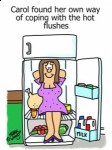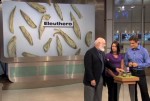Supreme Court Says Wyeth Must Pay $60 Million Prempro Verdict
Wyeth failed to conduct appropriate studies on breast cancer and concealed material facts about its products' safety (p. 35)
– The warnings provided by Wyeth were misleading and “reassuring.” (p. 39)
– Internal Wyeth documents showed that Wyeth responded to studies suggesting a possible breast cancer risk by downplaying the risk through public relations campaigns and its sales representatives' interactions with physicians. pg. 8
– Wyeth engaged in extensive ghost-writing of scientific articles in order to influence prescribing physicians. Published under independent doctors' names, at least 51 ghostwritten medical articles touted the benefits of hormone replacement therapy while minimizing the breast cancer risk. (p. 11)
– Wyeth implemented a policy to dismiss scientific studies that showed any link between breast cancer and hormone therapy drugs and to distract the public and medical professionals from the information. (p. 40)
– Substantial evidence was introduced that Wyeth acted with malice, conduct that supports a punitive damage award. (p. 41)
Dedicated to all the women who have died of breast cancer and to those who have fought cancer and those who unknowingly trusted their doctors menopause treatment suggestions and were told HRT was safe. Now we know good doctors were lied to by pharmaceutical companies like Wyeth.
Source: Nevada Supreme Court http://www.nevadajudiciary.us/index.php/oralarguments/720-wyeth-vs-rowatt









